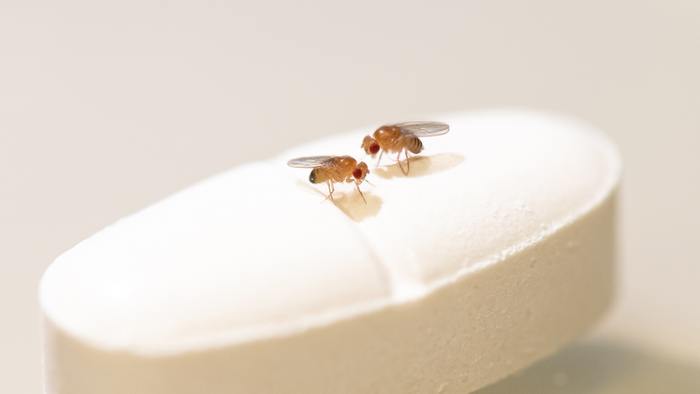The life expectancy of women is significantly higher than that of men. However, women also suffer more often from age-related diseases and adverse drug reactions. “Our long-term goal is to make men live as long as women and also women as healthy as men in late life. But for that, we need to understand where the differences come from”, explains Yu-Xuan Lu, one of the leading authors of the study.

Credit: K. Link/Max Planck Institute for Biology of Ageing
The life expectancy of women is significantly higher than that of men. However, women also suffer more often from age-related diseases and adverse drug reactions. “Our long-term goal is to make men live as long as women and also women as healthy as men in late life. But for that, we need to understand where the differences come from”, explains Yu-Xuan Lu, one of the leading authors of the study.
Rapamycin extends lifespan only in female flies
The researchers gave the anti-ageing drug rapamycin to male and female fruit flies to study the effect on the different sexes. Rapamycin is a cell growth inhibitor and immune regulator that is normally used in cancer therapy and after organ transplantations. They found that rapamycin extended the lifespan and slowed age-related intestinal pathologies in female flies but not in males.
Healthier life due to more autophagy
The researchers observed that rapamycin increased autophagy – the cell’s waste disposal process – in the female intestinal cells. Male intestinal cells, however, already seem to have a high basal autophagy activity, which cannot be further increased by rapamycin. The scientists could also see this effect of rapamycin in mice. Female mice showed increased autophagy activity after treatment with rapamycin. “Previous studies found that females had greater responses to rapamycin on lifespan extension than did males in mice, we now uncover an underlying mechanism of these differences using flies”, says Yu-Xuan Lu.
Sex-specific, personalised treatments
“Sex can be a decisive factor for the effectiveness of anti-ageing drugs. Understanding the processes that are sex-specific and determine response to therapeutics will improve the development of personalised treatments”, explains Linda Partridge, senior author of the study.
Journal
Nature Aging
DOI
10.1038/s43587-022-00308-7
Method of Research
Experimental study
Subject of Research
Animals
Article Title
Sexual identity of enterocytes regulates autophagy to determin intestinal health, lifespan and responses to rapamycin
Article Publication Date
1-Dec-2022




